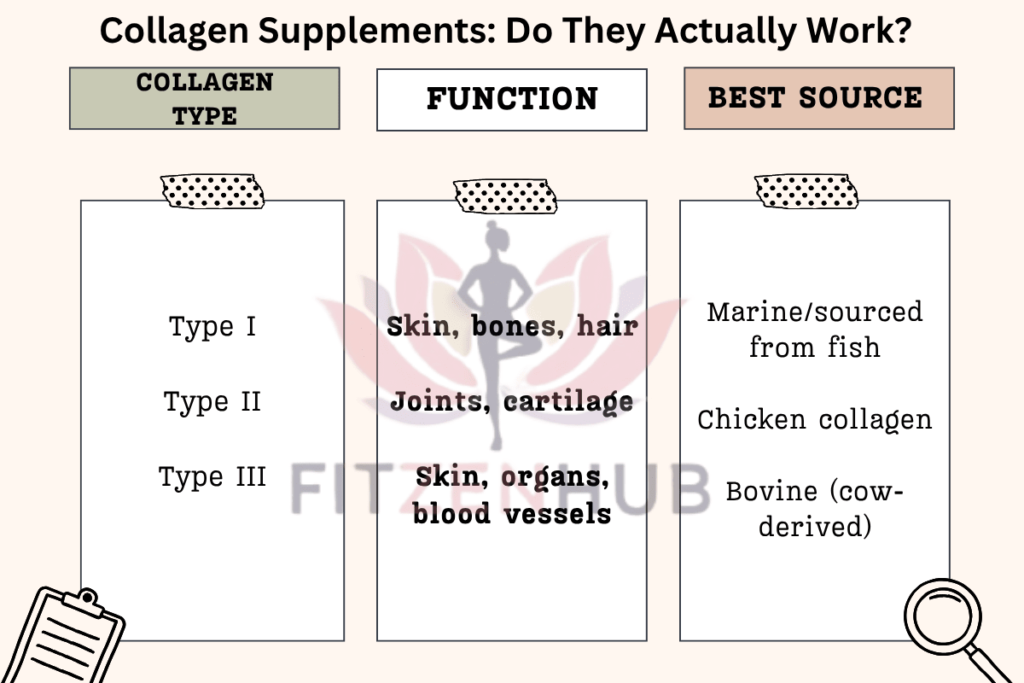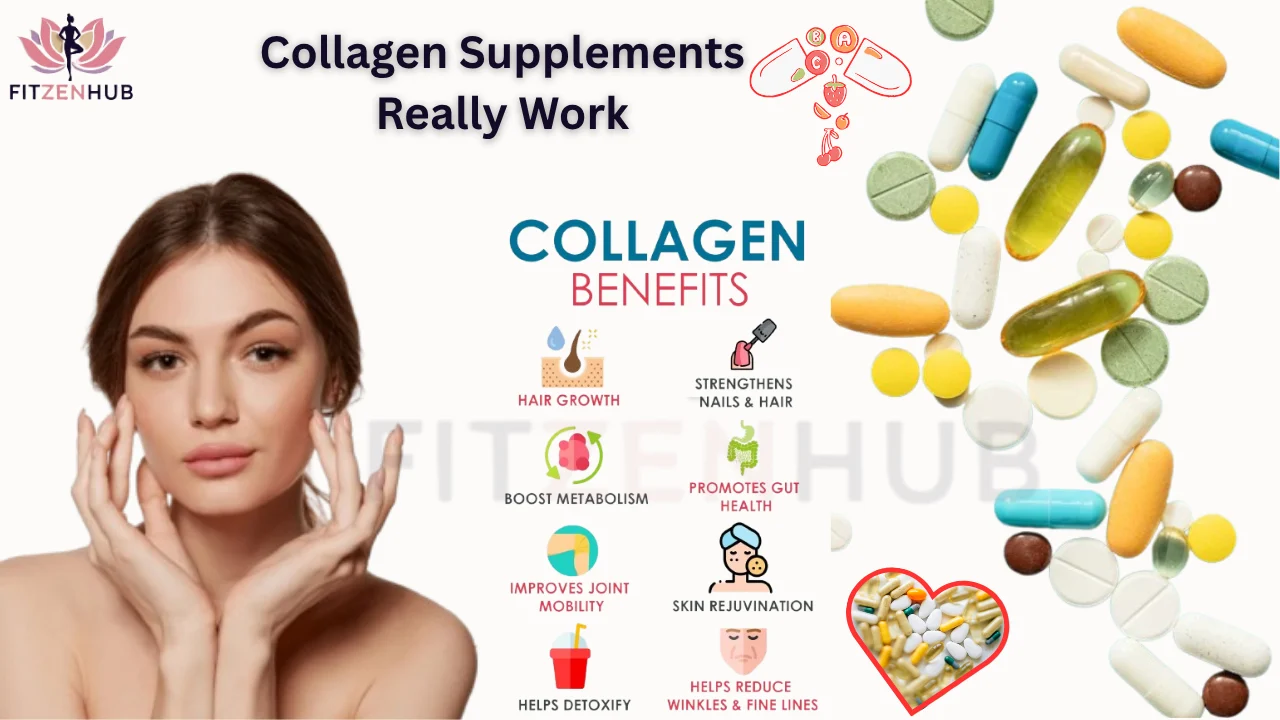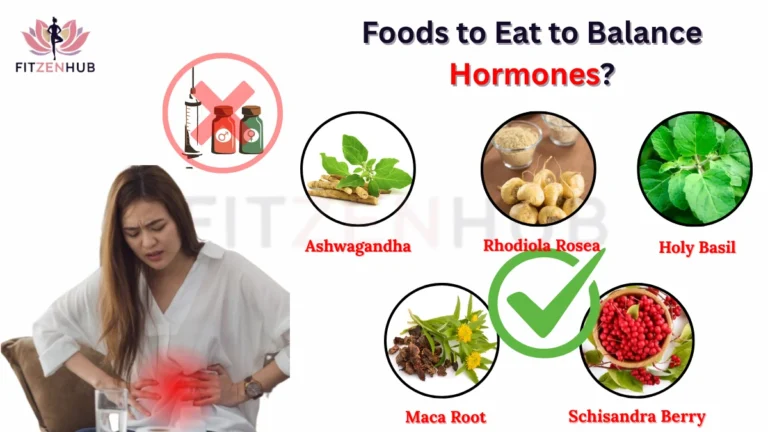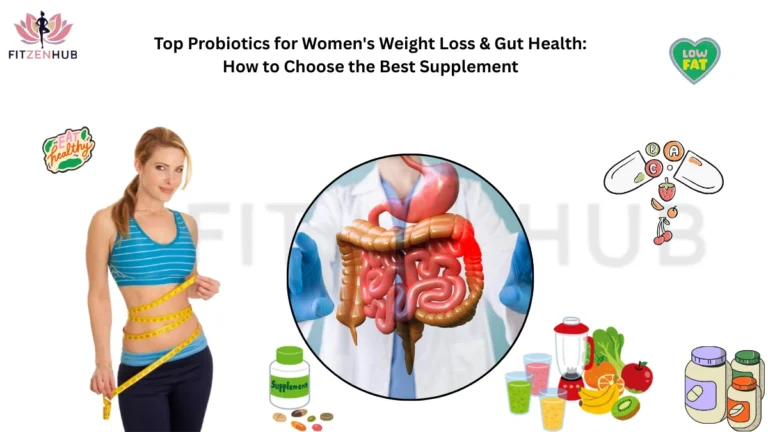✨ Wondering if collagen really works after 30? Discover the truth behind collagen supplements for women—glow, gut health & joint relief all in one scoop!
The Science + What No One Tells You
Curious why your skin is dull, your hair is thinning, or your joints are cracking — even though you eat clean and stay active? You might be losing more collagen than you think.
🧬 What Is Collagen — and Why Does It Matter After 30?
Collagen is the most abundant protein in your body — think of it as the glue that holds everything together: skin, joints, hair, bones, and even your gut lining.
But here’s the catch:
After the age of 25–30, your natural collagen production starts dropping by 1% per year. By 40, you might have lost up to 20–25% — and it shows.
The signs?
- Fine lines that no serum fixes
- Weak, splitting nails
- Joint pain after simple activities
- Thinning, lifeless hair
- Sagging skin and deeper wrinkles
🧠 Fun Fact: Collagen decline also affects gut lining and hormones, not just your looks.
💥 Collagen Supplements: Do They Actually Work?
Let’s get this straight — yes, collagen supplements can work. But not all collagen is created equal.
There are 5 main types of collagen, but for women over 30, Type I, II, and III matter most:

✅ Hydrolyzed collagen peptides (aka collagen hydrolysate) are the most bioavailable — your body absorbs them quickly.
🔬 What the Science Says
Several studies back up the benefits of collagen peptides:
- A 2021 clinical trial found improved skin elasticity and hydration after 12 weeks of collagen supplementation.
- Another 2020 study showed reduced joint pain in women over 40 after consistent collagen intake.
- Some trials even indicate increased muscle mass retention during weight loss in middle-aged women.
🔍 Collagen vs. Collagen Builders: What’s Better?
Here’s where most women get confused:
- 🧴 Collagen creams don’t penetrate deep enough to work.
- 🥬 “Collagen boosters” like Vitamin C, zinc, or hyaluronic acid are helpful — but they don’t replace collagen loss.
- 🧃 Bone broth is great, but it’s not concentrated enough for targeted repair.
✅ Solution: Combine collagen peptides + collagen builders in your daily routine.
🧪 How Low Is Your Collagen?
🔢 Collagen Age Calculator
🥄 How to Take Collagen: Dosage & Hacks
📌 Ideal Dose: 10–15g per day (hydrolyzed peptides)
- Add to morning coffee or smoothie
- Stir into Greek yogurt or oatmeal
- Mix into lemon water with vitamin C (boosts absorption)
👉 Pro Tip: Take it consistently for 8–12 weeks for visible results.
🛑 Common Mistakes to Avoid
- ❌ Buying collagen without checking type (Marine > Bovine for skin)
- ❌ Ignoring added sugars and fillers
- ❌ Expecting overnight results (it’s a 2–3 month game)
- ❌ Taking collagen without Vitamin C
🌱 Natural Ways to Boost Collagen (Beyond Supplements)
Even with collagen powders, lifestyle still matters:
| Natural Booster | Why It Works |
|---|---|
| Citrus Fruits | High in Vitamin C (activates collagen synthesis) |
| Bone Broth | Rich in natural collagen & amino acids |
| Aloe Vera Juice | Promotes skin regeneration |
| Zinc-Rich Foods | Crucial for collagen production |
| Red Light Therapy | Boosts collagen in skin layers |
💬 Real Women, Real Stories
“After 3 months on marine collagen, my nails stopped breaking, my skin was glowing, and my knees didn’t pop when I climbed stairs. I’m hooked!”
— Michelle R., 39, Denver
“I thought collagen was just another fad. But I gave it a try and wish I had started in my 30s. Huge difference!”
— Tanya B., 45, Austin
👩⚕️ When to Talk to a Doctor
- If you’re pregnant, breastfeeding, or have autoimmune conditions
- If you’re taking medications (especially for thyroid or hormones)
- If you experience bloating or gut discomfort after taking supplements
Always check labels and consult before starting long-term.
😂 Poll 1: What Aging Symptom Annoys You Most?
😅 Poll 2: What Makes You Feel “Old” Instantly?
🤣 Poll 3: Which of These “Old People” Habits Do You Secretly Enjoy?
😂 Poll 4: What’s Your Reaction When Someone Calls You “Ma’am” or “Sir”?
😜 Poll 5: Which “Anti-Aging” Trick Do You Wish Actually Worked?
🎉 You’ve Completed the Poll!
You’re not alone — 87% of people totally feel you! 😉
✨ You survived all the polls — that counts as cardio!
✅ Should You Take Collagen After 30?
Yes — but smartly.
Collagen won’t reverse aging, but it can slow it down and help your body age with grace — from skin to gut to bones.
🧃 Consistency + Quality = Results.
You deserve a body that feels as youthful as you dream.
🔥 Ready to Try It?
👉 Start with 10g of hydrolyzed marine collagen + Vitamin C daily for 90 days.
Track your glow, strength, and energy — and don’t forget to take before/after pics!
Also Read: Do Women Really Need Collagen?
🔍 Sources:
- Cleveland Clinic – Collagen Supplements: Are They Effective?
https://health.clevelandclinic.org - Harvard Health – Collagen: Benefits and Safety
https://www.health.harvard.edu - PubMed/NIH – Effects of Collagen on Skin Aging and Elasticity
https://pubmed.ncbi.nlm.nih.gov - Dermatology Times – Collagen Peptides in Anti-Aging Skincare
https://www.dermatologytimes.com
❓ FAQs:
Q1. Do collagen supplements really work after age 30?
Yes, studies show collagen can improve skin hydration, elasticity, and joint function—especially after collagen production declines post-30.
Q2. What type of collagen is best for women over 30?
Hydrolyzed collagen peptides (Types I & III) are most effective for skin, while Type II supports joint health.
Q3. When will I see results from taking collagen?
Visible results typically appear after 4–8 weeks of daily use, especially for skin, nails, and digestion.
Q4. Can collagen help with perimenopause or menopause?
Yes! Collagen supports thinning skin, brittle hair, and joint stiffness common in perimenopausal women.
💬 Final Thought:
Turning 30 doesn’t mean your glow has to fade. Collagen supplements offer more than just youthful skin—they support your joints, boost gut health, and enhance overall vitality. When paired with hydration, protein, and nutrient-rich foods, collagen can be your skin’s best ally as you age gracefully and powerfully. 💪✨







